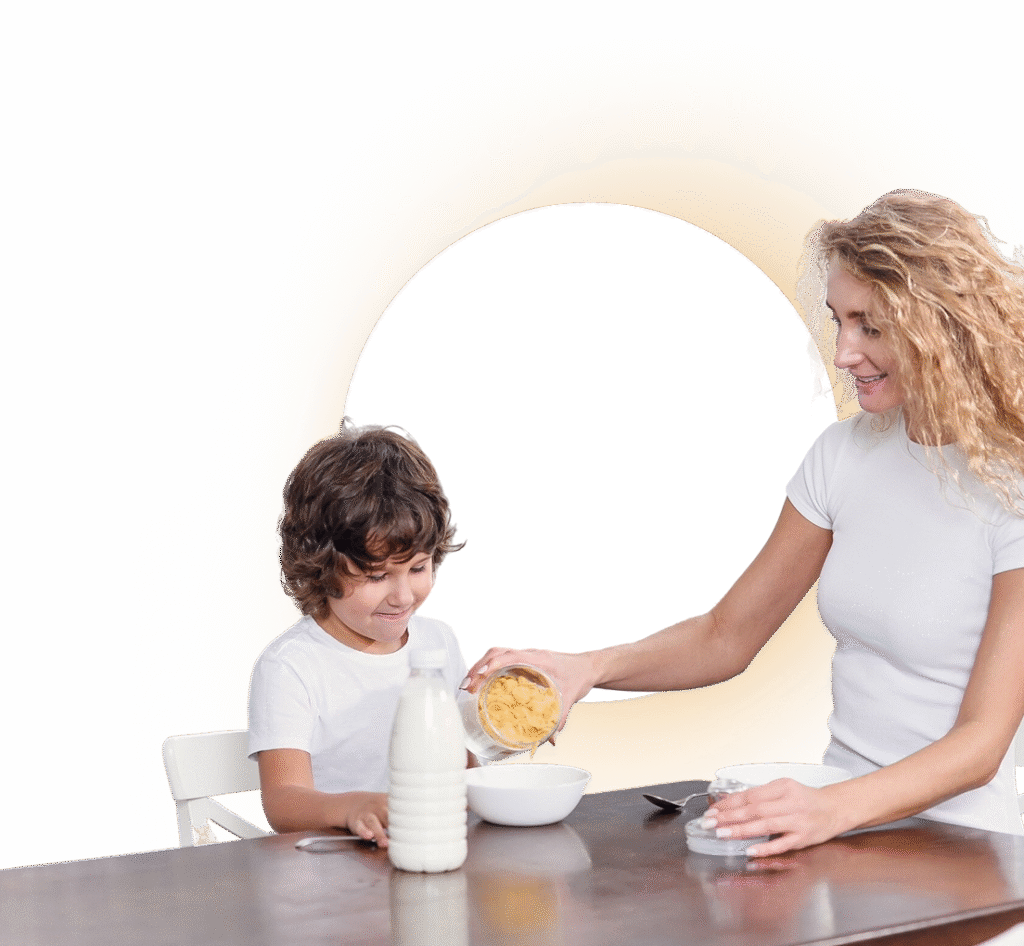Helping Children Thrive in Everyday Activities

With Expert Pediatric Occupational Therapy at Child Development Center, Dubai


What is Pediatric Occupational Therapy
Little Hands, Big Possibilities!
Pediatric Occupational Therapy focuses on helping children develop the skills they need for daily life—whether it’s writing, playing, dressing, or managing sensory challenges.
At the Child Development Center (CDC), our experienced occupational therapists use evidence-based methods and personalized care plans to help children with motor delays, sensory processing difficulties, autism, ADHD, and developmental challenges.
Our goal is simple: to build independence, confidence, and joy in your child’s daily activities—at home, in school, and in life.
Tackle These Challenges with Pediatric Occupational Therapy!

Fine & Gross Motor Skill Delays

Sensory Processing Differences

Handwriting & School Readiness Issues

Coordination & Balance Problems

Attention Deficit Hyperactivity Disorder (ADHD)

Play & Social Participation Difficulties

Attention & Organizational Skills
The Power of Pediatric Occupational Therapy
Building Skills for Independence, One Child at a Time!

Speech & Language Therapy Collaboration
Integrated care plans with our speech-language therapists for children facing communication delays or social language issues

Boosting Creativity and Play
Encourages imagination and participation through play-based therapy, enhancing social and cognitive growth.

Independence in Daily Living
Builds essential self-care skills—feeding, grooming, and dressing—empowering children to become more independent.

Improved Balance and Coordination
Helps children develop core strength, coordination, and motor planning for smoother movement and confidence.

School Readiness & Academic Success
Prepares children for classroom demands like handwriting, focus, and organizational skills.

Sensory Processing Support
Encourages imagination and participation through play-based therapy, enhancing social and cognitive growth.

Personalized Support for Developmental Delays
Provides tailored therapy for children with autism, ADHD, and other challenges—helping them grow through strengths-based interventions.

Confidence & Life Skills for the Future
Equips children with adaptive skills, resilience, and confidence to thrive in school, at home, and in social settings.
The Importance of Early Intervention in Occupational Therapy
The Sooner the Support, the Stronger the Foundation

Early Skills Build Lifelong Independence
Addressing motor, sensory, and daily living challenges early prevents them from becoming bigger barriers later.

Spotting Delays Sooner
Early evaluation helps identify motor, sensory, or developmental concerns—so tailored support can begin right away.

Improving Play and Social Participation
Encourages confidence in play, teamwork, and social interactions, laying the foundation for stronger friendships.

Building Self-Care & Daily Living Skills
Supports independence with feeding, dressing, grooming, and other essential daily tasks.

Maximizing Developmental Potential
Strengthens fine motor, gross motor, and sensory processing during the most crucial stages of growth.

Boosting School Readiness
Enhances handwriting, focus, and coordination—helping children succeed in academic settings.

Empowering Families with Tools
Guides parents with strategies to continue skill development at home in everyday routines.

Noticing Progress Early On
With the right support, many children quickly gain confidence, independence, and improved participation in daily life.

Our Signature Approach
The DART Method
A thoughtful, structured pathway from first concerns to meaningful change.
DART
Diagnosis
This includes a thorough examination and investigation to reach a diagnosis.
Assessment
A multidisciplinary assessment is carried out by varied and appropriate therapists.
Recommendation
A comprehensive recommendation report is given to parents.
Therapy
Following diagnosis, appropriate therapies are instituted with regular feedback.
Parent's Quiz
Does My Child Need Occupational Therapy?
Answer honestly—this short quiz helps you reflect on your child’s daily challenges.
1. Daily Skills
- Does your child struggle with dressing, feeding, or brushing teeth?
- Is handwriting or using scissors unusually difficult for their age?
2. Sensory Needs
- Does your child get overwhelmed by sounds, textures, or movement?
- Or do they constantly seek movement and sensory input?
3. Social & Play Skills
- Do they find it hard to play with peers, take turns, or share?
- Do they avoid activities because they’re “too hard” or frustrating?
4. Emotional Regulation
- Does your child often have meltdowns or difficulty calming down?
- Do transitions (like moving from one task to another) feel especially tough?
If you answered “yes” to several of these, your child may benefit from an OT consultation.
Why Families Across Dubai Trust CDC?

- Specialized Experts – UK- and internationally trained pediatric occupational therapists with extensive experience in motor, sensory, and developmental care.
- Individualized Care Plans – Personalized therapy programs tailored to your child’s strengths, challenges, and daily life needs.
- Child-Friendly Approach – Play-based, sensory-rich, and engaging activities that make therapy fun and effective.
- Regular Progress Tracking – Clear updates, milestones, and feedback so you’re always part of your child’s journey.
- Family-Focused Support – We guide parents with practical strategies to support skill development at home and school
- Collaborative, Holistic Approach —Our occupational therapists collaborate with psychologists, speech therapists, and developmental specialists to provide comprehensive care.
Meet Our Expert
Emma Jones
Specialist Pediatric Occupational Therapist
UK-trained and highly experienced, Emma Jones has supported children with developmental and neurological differences across both the NHS and Dubai.
She specializes in autism spectrum disorder, sensory processing challenges, and learning disabilities.
With a passion for empowering families, Emma combines evidence-based methods with play-based therapy to help children build independence, confidence, and essential daily living skills.
Her holistic, child-centered approach ensures every child is supported to reach their full potential.


Real Stories, Real Outcomes
Patient Testimonials
FAQs
Occupational therapy (OT) helps children develop the skills they need for everyday life—such as writing, playing, dressing, eating, and managing sensory input. It focuses on building independence and confidence in daily routines.
If your child struggles with tasks like handwriting, feeding, dressing, coordination, balance, or seems overly sensitive to sounds, touch, or movement, OT may be helpful. An evaluation with our specialists can provide clarity.
We work with children with autism spectrum disorder (ASD), ADHD, developmental delays, learning disabilities, cerebral palsy, sensory processing challenges, and other neurological or motor difficulties.
Sessions are play-based, engaging, and designed to meet your child’s needs. Activities may include games, sensory exercises, motor skill training, handwriting practice, or daily living skill development.
The duration varies depending on each child’s needs, progress, and goals. Some children benefit from short-term support, while others may need ongoing therapy. We review progress regularly and adjust plans accordingly.
Absolutely. We work closely with parents, providing strategies and guidance to continue skill-building at home and in school settings. Consistency across environments is key for lasting progress.
Not exactly. While both support motor development, OT focuses more on fine motor skills, sensory processing, and daily living activities, whereas Physical Therapy emphasizes strength, mobility, and physical rehabilitation.
Yes! Many children we see are clever and curious but find daily activities like handwriting, buttoning shirts, or using cutlery challenging. OT helps bridge the gap so they can keep up with peers and feel more confident in daily life.
Yes. Many behaviors—like frequent meltdowns, avoiding tasks, or seeming “defiant”—often stem from underlying sensory or motor difficulties. By addressing the root cause, OT can reduce frustration and improve your child’s ability to cope with everyday challenges.
We usually say: “Your therapist is here to help you with the things that feel tricky—like writing, playing, or getting dressed—by practicing them in fun ways.” Framing OT as “fun practice time” helps children feel excited and safe about coming to sessions.
Ready to Take the First Step?
The sooner therapy begins, the stronger your child’s foundation for independence.
Whether it’s mastering daily tasks, building motor skills, or overcoming sensory challenges, our compassionate occupational therapy team is here to support your child’s journey—every step of the way.



